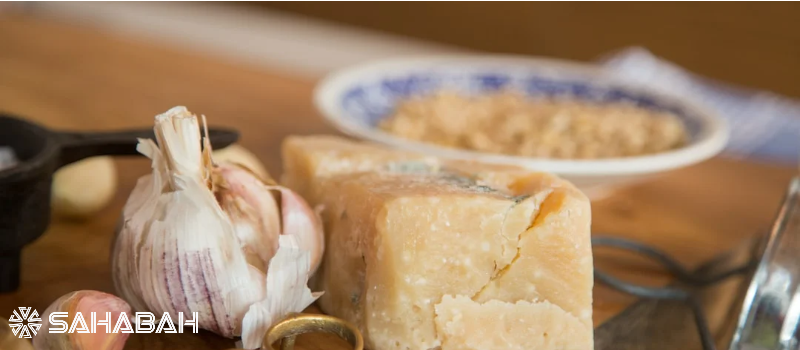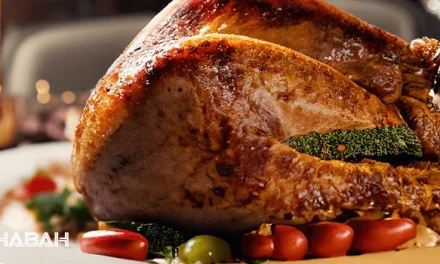Parmesan cheese is one of the most popular hard cheeses in the world. But is Parmesan cheese halal or haram for Muslims? This question arises because traditional Parmesan uses rennet from the stomach lining of calves to help curdle and coagulate the milk during the cheese-making process. Let’s take a detailed look at how Parmesan cheese is made, what it contains, and whether it meets halal standards.
Eating halal is very important for Muslims. Halal foods are those permitted under Islamic dietary guidelines, while haram foods are prohibited. When it comes to dairy products like cheese, the main considerations are where the milk came from and what other ingredients are used. For cheese to be halal, it must be made with milk from a halal animal like a cow, and no haram ingredients can be used.
How is Parmesan Cheese Made?
Parmesan cheese originated in Italy and is a hard, aged cheese made from cow’s milk. To make Parmesan, raw milk is first left to partially skim, meaning the cream rises to the top. The cream is removed to make butter, and the remaining lower-fat milk is used to make Parmesan. The milk is heated and curdled by adding rennet, which causes the milk proteins to coagulate.
Traditionally, this rennet comes from the stomach lining of young calves. The curds are separated from the whey, put into molds, and aged for at least 12 months to allow the flavors to develop. Most Parmesan cheese is aged between 12 and 36 months. The longer it ages, the more complex the flavor becomes.
Does Parmesan Contain Non-Halal Ingredients?
The potential issue with Parmesan being halal arises from the use of non-microbial rennet. Traditional animal-derived rennet comes from the stomachs of young calves after they have suckled milk. This rennet contains enzymes that help separate milk into solid curds and liquid whey. For Muslims who follow the strictest interpretations, this animal-derived rennet would make Parmesan haram.
However, today there are alternatives. Many Parmesan cheese makers now use microbial rennet, which is made from fungi or bacteria cultures and considered halal. Vegetable rennet from plant sources like fig leaves may also be used.
In addition to the rennet, Parmesan can contain small amounts of alcohol as it ages. The alcohol occurs naturally from the fermentation process. While this could be another concern for halal consumers, the amount is typically less than 1%, which some consider acceptable.
So Is Parmesan Cheese Halal or Haram?
Whether Parmesan cheese is halal or haram depends on the specific ingredients and process used to make it. According to many halal authority organizations, if a cheese uses microbial rennet and only halal approved ingredients, it can be halal. But other groups require stricter standards, like a fully vegetarian cheese-making process.
Major Parmesan cheese brands like Kraft and BelGioioso state their products are halal-certified and vegetarian-rennet based. But as a naturally aged cheese, Parmesan sold today was likely made months or even years ago. So verifying the exact rennet source can be difficult unless it’s clearly labeled halal-approved.
What to Check for Halal Parmesan Cheese
When purchasing Parmesan cheese, here are some things halal consumers can look for:
-
Halal certification logo – Various organizations certify halal products. Checking for one of these logos provides assurance.
-
Labeling as “halal” or “halal-approved”.
-
Listing microbial/vegetable/vegetarian rennet in ingredients. Animal rennet may be listed as “enzymes”.
-
Company website/customer service may clarify halal status. Big brands are getting better at addressing this.
-
No alcohol or “cheese cultures” in the ingredients. This indicates a more natural aging process.
-
Sold at a halal grocery store. Stores serving the Muslim community are vigilant about halal products.
Parmesan Cheese Alternatives for Halal Diets
For Muslims wanting to avoid potential issues with Parmesan cheese, some good halal alternatives include:
-
Cheddar cheese – Many mass producers label their cheddar as halal-approved and vegetarian-rennet based.
-
Feta cheese – Feta doesn’t require rennet in the process, only salt brine. Greek brands that avoid lipase enzymes are halal-friendly.
-
Queso fresco – No rennet is used to make this Mexican fresh cheese. It consists of only milk, salt, and heat.
-
Paneer – Fresh cheese common in South Asian cuisine. It’s made by curdling milk with lemon juice or other vegetarian acids.
-
Halloumi – This semi-hard, salty Cypriot cheese is often halal certified and uses vegetable or microbial rennet.
-
Mozzarella – Can be made using citric acid instead of rennet. Buffalo mozzarella may be safer as water buffaloes are halal animals.
Conclusion
Many modern Parmesan cheese producers have adapted their processes to be able to label their products as halal and vegetarian-friendly. But traditional Parmesan cheese made in the old-fashioned way would likely not meet halal standards due to the animal rennet. Ultimately, it’s up to each Muslim consumer to decide based on their personal interpretation of halal principles and by verifying ingredients whenever possible. With the growing demand for halal foods, options for high-quality halal cheeses like Parmesan continue to expand.
Frequently Asked Questions – Is Parmesan Halal?
Parmesan cheese is not considered halal as it is a hard cheese made using animal rennet from the stomach lining of young calves. Animal rennet is derived from non-halal sources and therefore renders Parmesan cheese haram.
What is the process of making Parmesan cheese?
Parmesan cheese is made from cow’s milk. The milk is first heated and curdled, and then enzymes (rennet) derived from the stomach of young calves are added to coagulate the milk. After this, the curds are cut, cooked, and pressed to remove the whey. The cheese is then aged for a specific period, usually around 12-24 months.
Can Parmesan cheese be considered halal if it is made using microbial rennet?
Yes, Parmesan cheese can be considered halal if it is made using microbial rennet instead of animal rennet. Microbial rennet, derived from halal sources, is produced through fermentation techniques using microorganisms and does not involve the use of any animal enzymes.
Is Parmesan cheese made differently for it to be halal?
There are variations of Parmesan cheese that are made using alternative methods to ensure they are halal-friendly. These variations typically use vegetarian rennet or microbial rennet as a substitute for animal rennet.
Can any type of cheese be considered halal?
Not all types of cheese are halal. The halal status of cheese depends on the source of rennet used during the production process. If the rennet used is derived from halal-certified or vegetarian sources, the cheese can be considered halal.
Is Parmesan cheese considered a type of halal cheese?
No, Parmesan cheese is not considered a type of halal cheese due to its production process involving animal rennet sourced from non-halal animals.
Can vegetarian Parmesan cheese be halal?
Yes, if vegetarian Parmesan cheese is made using halal-certified ingredients and without the use of animal rennet, it can be considered halal.
Is Parmesan cheese considered a traditional halal cheese?
No, Parmesan cheese is not traditionally considered halal as it is made using animal rennet. Traditional halal cheeses are typically made using halal-certified rennet or microbial rennet.
Key Points:
-
Halal status depends on the ingredients and process. Traditional Parmesan uses animal rennet which some consider haram.
-
Look for halal certification, vegetable rennet, and no alcohol/animal enzymes on the label. Contact the manufacturer if unsure.
-
Many halal-friendly Parmesan alternatives exist like cheddar, feta, queso fresco.
-
Modern Parmesan producers are moving towards microbial and vegetarian rennet to meet halal demand. But traditional cheeses may still contain animal rennet.





